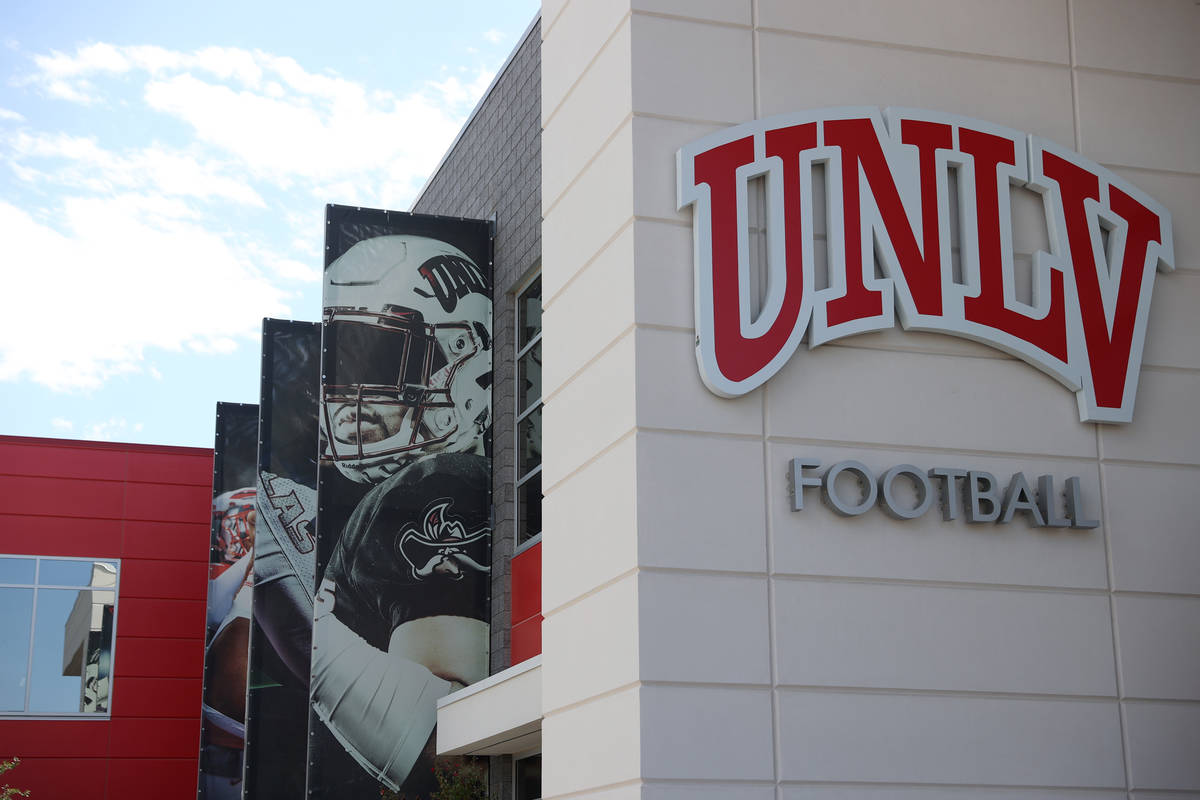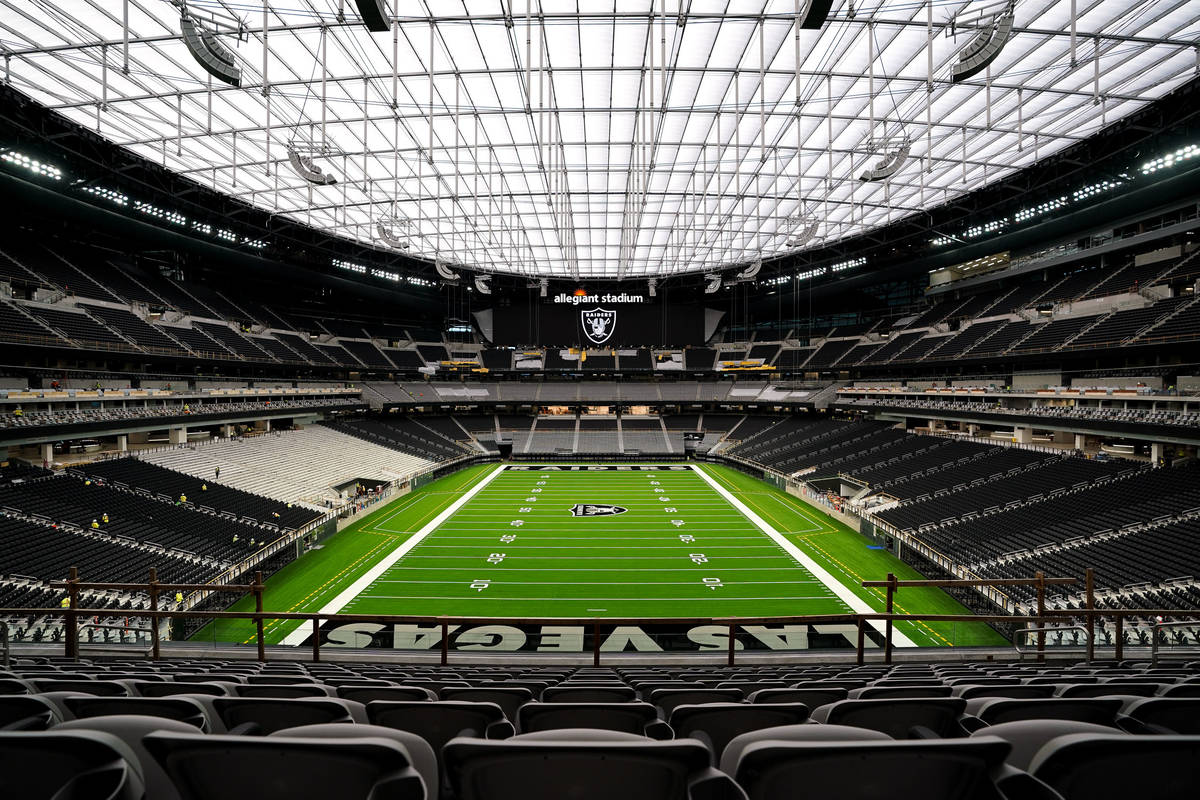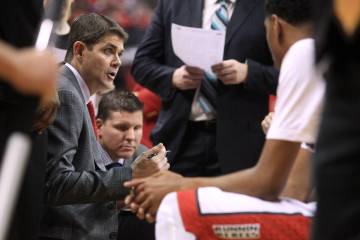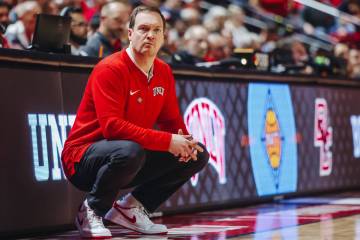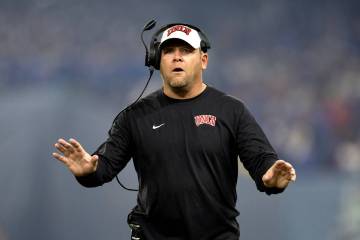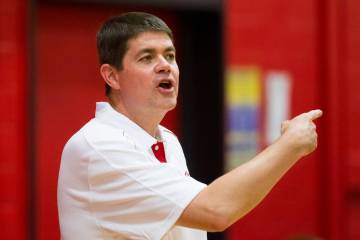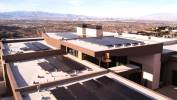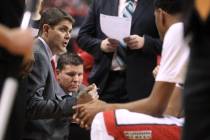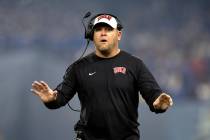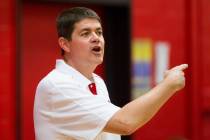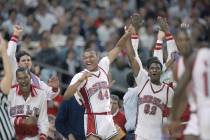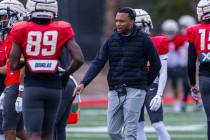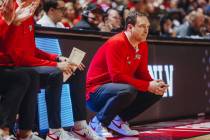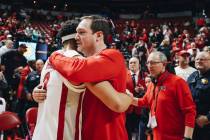UNLV finances, momentum to take a hit after football season postponed
With Allegiant Stadium set to sit quiet on Saturdays this fall, one of the UNLV athletic department’s biggest moneymakers will not be generating revenue in an already budget-constricted year.
UNLV sold a record 7,460 season tickets for it inaugural season at Allegiant Stadium, up 34 percent from the 5,582 sold for the 2019 season, which itself was a 39 percent increase from 2018. But after UNLV’s 2020 fall football season was postponed Monday, the program’s finances and momentum figure to take a hit.
“It’s gonna be a challenge, but we knew that,” UNLV Athletic Director Desiree Reed-Francois said in a virtual news conference Tuesday. “We knew it was a challenge that we were prepared to take head-on. In terms of specific numbers, time is going to tell. Our expectation is we’re going to play in the spring. We hope that our season ticket holders will stay with us and look forward to seeing football in the spring.”
Reed-Francois said there were too many variables to estimate the financial impact of Monday’s decision by the Mountain West to postpone the fall football season.
But a report filed to the Nevada System of Higher Education in December shows UNLV saw $2.9 million in revenue generated by football in fiscal year 2019. Revenue was expected to remain about the same for FY 2020, with a projected increase to $3.1 million in FY 2021, according to the report.
In all, sports generated $17 million in revenue for UNLV in 2019, accounting for 43 percent of the total athletic budget of $40 million. FY 2020’s budget was slated to be $42.6 million.
Because of financial constraints brought on by the pandemic, the Nevada System of Higher Education’s Board of Regents slashed the scheduled state funding portion of UNLV’s athletic budget ($7.9 million) by 20 percent for the 2020-21 school year, a decrease of more than $1.5 million.
‘A myriad of unknowns’
With the uncertainty surrounding the virus and how long the pandemic will last, as well as possible long- and short-term health risks for players, coaches and support staff, football in the spring is not a given, but it is what’s being planned.
“There are still a myriad of unknowns right now, but we will be prepared and we will act in accordance with our core values and take care of our student-athletes,” Reed-Francois said.
If the worst-case scenario unfolds and there is no football season in the spring, season ticket holders hold a few options.
They can receive a credit to be applied to season tickets when the Rebels are back on the field. Ticket holders could also opt to donate the funds to the school in what Reed-Francois dubbed an “incredibly generous” option. Or fans can request a refund.
Whether UNLV football returns in the spring or has to wait until fall 2021, the Rebels believe they can carry over the momentum of the past few years, which saw them add a new on-campus training center as well as the introduction of Allegiant Stadium.
“When it’s safe enough for us to play, we still have an incredible new $2 billion Allegiant Stadium. We still have the best training facility in the entire conference and I would say the entire West Coast,” Reed-Francois said.
UNLV head football coach Marcus Arroyo added, “I’m fired up. Whenever they allow me to kick those doors open (at Allegiant Stadium), we’ll be ready.”
Impact on other sports
In addition to football, the Pac-12 conference announced Tuesday that other sports such as men’s college basketball were going to be postponed in 2020. Reed-Francois said discussions about what will happen to winter sports in the Mountain West and at UNLV are still being held.
Runnin’ Rebel basketball generated $2.1 million in revenue in fiscal year 2019 and was projected to bring in about the same for FY 2020. UNLV should expect to see less revenue from the Mountain West and NCAA after seeing $4.6 million in revenue from the two, mainly from media rights and television deals.
If the football and basketball seasons aren’t able to take place at all, Reed-Francois said cutting other sports due to a lack of revenue generation isn’t an option.
“We have no intentions in cutting sports programs,” she said. “We have full faith and confidence that we’re going to be all back together and we’re going to be able to work with this virus and move forward.”
Contact Mick Akers at makers@reviewjournal.com or 702-387-2920. Follow @mickakers on Twitter.



